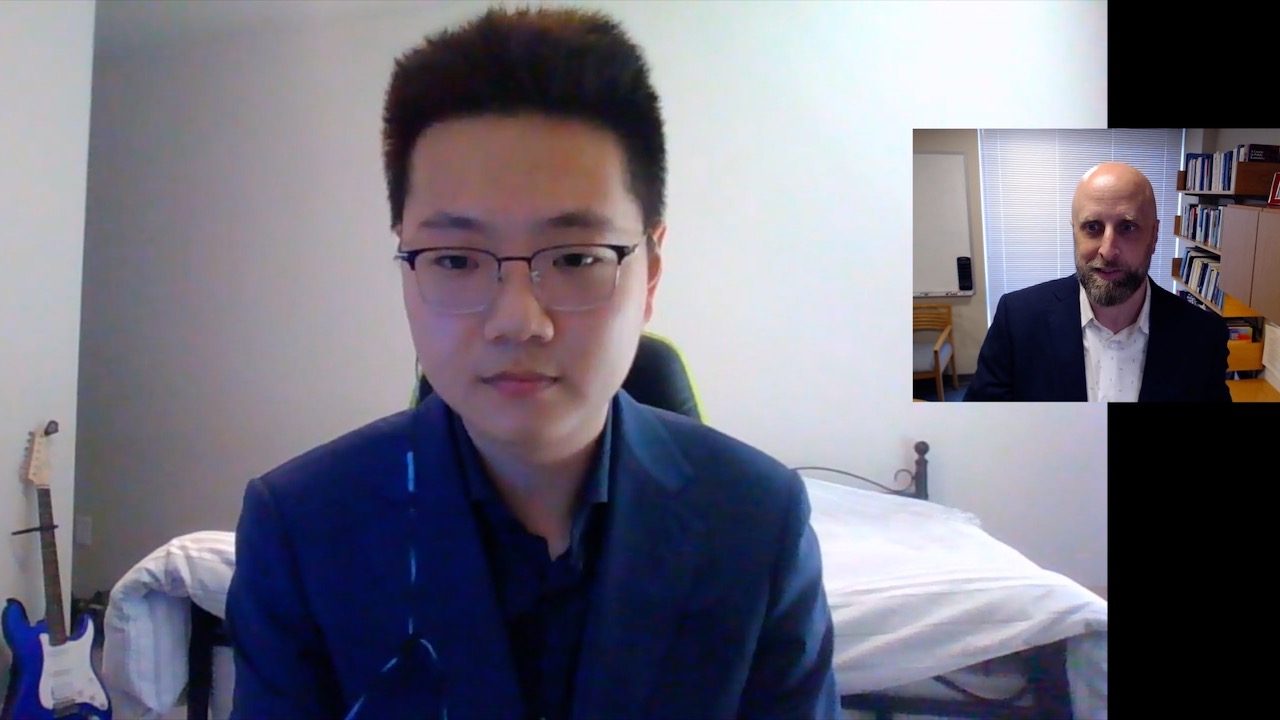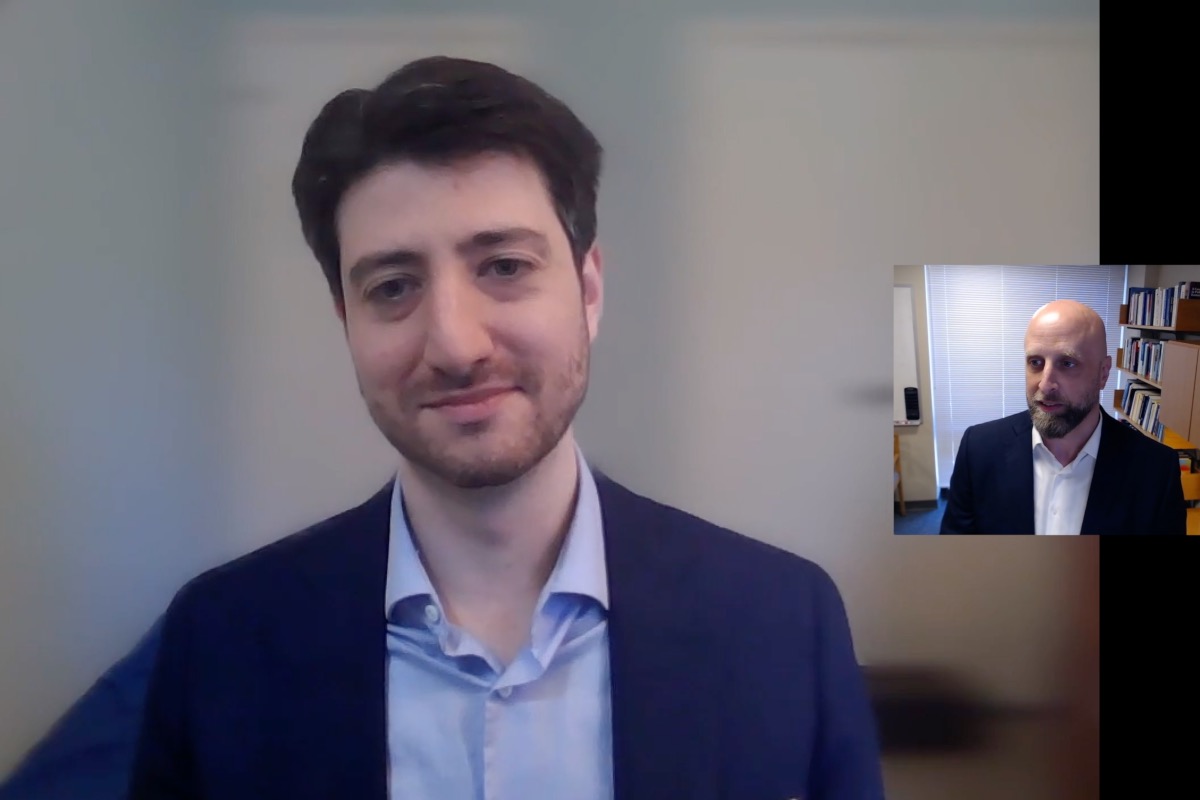analytics in action
analytics in action
Follow the data
Improving operations, mitigating risk, forecasting revenue, generating insight, increasing productivity—all now involve understanding emerging applications in data science, AI and machine learning. While data analytics has become a core discipline for the practice of business, its role within different functions and influence on different industries continues to evolve.
Consider this your front row seat to the action.
Here you’ll find research and insights from Fuqua faculty who deeply study AI, machine learning, and how to apply analytics to real business problems—partnering with some of the biggest names in tech. You’ll also learn from Fuqua leaders using data analytics to innovate at their companies now, who share approaches to navigating these issues across a diverse range of industries and functions.

How AI Could Potentially Manipulate Consumers
The rise of artificial intelligence is enhancing online platforms’ ability to predict customer preferences. Professor Ali Makhdoumi says this may enable companies to exploit a growing information advantage over consumers.

How Companies Should Think About Compensation Users for Private Data
As data-hungry technologies are getting more and more efficient, Professor Ali Makhdoumi says the key question is how to incentivize data-sharing while protecting users’ privacy.

An Approach to Improve Efficiency of Electric Utilities
Utility companies provide electricity without interruption to houses and businesses in the territory they serve. To produce electricity, they tap into a mix of power sources. Professor David Brown explains an algorithmic framework that optimizes the energy mix of utilities under uncertainty.

Using Machine Learning to Smartly Stock Grocery Stores
Professor Kevin Shang explores a machine-learning solution to allow grocers to stock optimal amounts of perishable food in their supply chains.

Explaining the "T" in ChatGPT
A fundamental building block for various large language models, the “T” in ChatGPT aims to emulate the way humans process language. Professor Jiaming Xu explains the architecture underpinning the current wave of AI and some of its possible business applications.

Developing and Applying Consumer Analytics Insights
Daewe Kim, Senior Manager, IT Data & Analytics at Proctor & Gamble and MQM ’20, explains how he uses data to understand consumer trends. Kim joined Professor Jeremy Petranka to discuss data sources and how insights inform retail and marketing decisions at multinational corporations.

Will Federated Learning Revolutionize AI Training?
Professor Jiaming Xu says federated learning is a new approach that holds the promise of transforming artificial intelligence systems training. He studied ways to protect data when using a new decentralized, collaborative training methods.

The Algorithms Behind Pricing Your Ride
Technology makes it easy for companies like Uber and Lyft to add for-hire cars to city streets, but providing an optimal supply of vehicles is a daunting challenge. Professor David Brown helped develop a dynamic pricing model that allows ride-share companies to use their resources more efficiently.

Founding a Company in the AI and Analytics Space
David Hailey, Countifi founder and CEO, and Weekend Executive MBA ’13, launched the company to streamline inefficient inventory management systems used by airlines, hospitals and other businesses. In an interview with Professor Jeremy Petranka, he discusses founding Countifi without a deep background in data science and how Countifi uses computer vision to manage inventory.

Improving Health Care Outcomes with Data
David Harvey, a social science research analyst at the Centers for Medicare and Medicare and Medicaid Services and former consultant for Optum and United Healthcare, MSQM: HA ’22, explains how data can improve the patient experience in an interview with Professor Jeremy Petranka.

How Data Analytics Help Us Understand the Human Genome
Keriayn Smith, Assistant Professor in the Department of Genetics at the University of North Carolina-Chapel Hill, MSQM: BA '22, discusses in an interview with Professor Jeremy Petranka how machine learning allows researchers to meaningfully isolate genomes and what could be next in the rapidly evolving industry around this technology.

How Data Drives the Business of the Sports Industry
Kelsey McDonald, Director of Ticketing Strategy and Pricing Analytics at BSE Global, the parent company of the Brooklyn Nets and several other sports properties, MQM ’18, discusses the state of performance analytics, the use of data science in professional sports organizations, dynamic ticket pricing, and the future of sports analytics. She joined Professor Jeremy Petranka for an interview.

Developing New Strategies to Measure the Impact of an Interview in Complex Settings
Estimating causal effects of policies, interventions and decisions is increasingly important in business. Professor Alexandre Belloni is exploring a new model to study complex settings where individuals can interfere with each other when experiencing a treatment.

How to Encourage Good Behavior From Suppliers on Online Platforms
Professor Peng Sun and collaborators developed a system to ensure high quality in products and services offered through platforms.

Increasing Cost-Efficiency in Online Shopping Deliveries
When companies develop strategic plans for the future, they need to account for a high level of uncertainty. Professor Yehua Wei helps companies develop more flexible fulfillment networks.

Finding the Best Match Between Clients and Freelancers on Online Platforms
Clients often have specific needs that not all workers can properly fulfill. Professor Jiaming Xu develops algorithms to infer important information from complex network data to find the best match.

How to Overcome the Harms of Excessive Data Sharing
As the use of online platforms grows, there is an increasing amount of data from individuals being collected by companies, a process that is set to expand exponentially with advances in artificial intelligence and machine learning. But Professor Ali Makhdoumi's research suggests the advances are contributing to an overlooked problem.

How Should Music Streaming Services Pay Artists?
The way people listen to music has drastically changed in the past few decades, and the rise of music streaming services has fomented a heated debate on how content providers get paid for their work. Professor Saša Pekeč's research explores the diversity of artists and users to determine the optimal payment rule.
